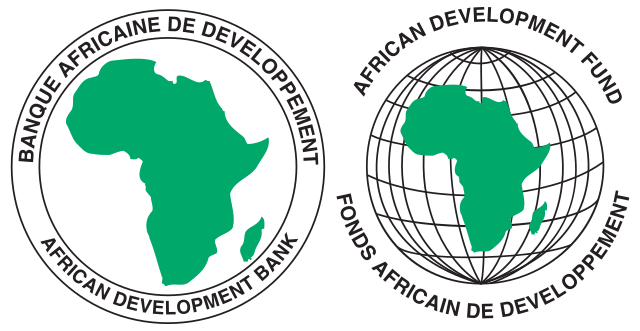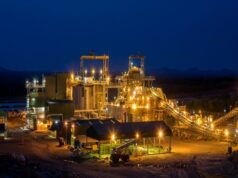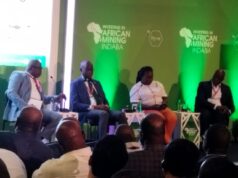The continent should also control, exploit and transform its enormous mineral resources locally in order to generate the financial resources needed for its development, argued these experts from a dozen African countries. They are meeting on 23 and 24 August 2023 for a workshop organised by the African Development Bank on the theme of “Financial Modelling for the Extractive Sector (FIMES)”.
ABIDJAN, Côte d’Ivoire, 25 August 2023: Africa must invest more in the development of renewable energies, with the support of the private sector and international financial institutions, because of the opportunities offered for achieving the Sustainable Development Goals, experts emphasised on Wednesday at a meeting in Abidjan.
The continent should also control, exploit and transform its enormous mineral resources locally in order to generate the financial resources needed for its development, argued these experts from a dozen African countries. They are meeting on 23 and 24 August 2023 for a workshop organised by the African Development Bank on the theme of “Financial Modelling for the Extractive Sector (FIMES)”.
“Renewable energy gives us opportunities to achieve the Sustainable Development Goals. We also need to be major actors in the energy field”, said Jean-David Cooper, Director of Policy and Research at Sierra Leone’s Ministry of Mines and Mineral Resources. “Mr Cooper was taking part in the panel on “Financial modelling for a just energy transition for certain critical minerals in countries in transition”.
Participants noted that Africa has made considerable progress in the energy transition despite the challenges. Pointing to the scale of the objectives still to be achieved, Silas Olang, Energy Transition Advisor for Africa at the Institute of Natural Resources Governance in Accra, Ghana, deplored the fact that no African country was among the top 30 in the world in terms of energy transition. However, countries such as Nigeria, Ghana, Ethiopia, Kenya and South Africa are implementing bold renewable energy development policies.
Renewable energies can provide electricity to the 600 million Africans who are currently deprived of it, create jobs and stimulate industrialisation. “Every dollar invested in renewable energies will yield an additional 0.93 dollar”, and the deployment of renewable energies will gradually lead to lower costs, unlike fossil fuels, says Mr Cooper.
In addition to solar energy, Africa’s assets in this area include wind power, biomass, hydroelectricity and minerals such as lithium, graphite and cobalt, which can be used in renewable energy technologies such as the production of solar panels and batteries for electric vehicles.
The need for the continent to make better use of its immense mineral resources for its sustainable development has become a key issue in the discussions.
Niger’s uranium is mined by France, its oil by China, points out Dogari Bassirou, Director General of the Economy at Niger’s Ministry of the Economy and Finance. This results in huge financial losses for African governments, who more often than not have to make do with foreign mining companies’ statements about the content of the minerals.
“The ores are not processed in Africa, but in European countries and China. 80% of African cobalt is refined in China. If we could refine the ores in Africa, we could sell them at a higher rate, because raw exports limit our financial gains. We are losing out enormously in the current system”, said Mr Cooper.
“For example, it is said that the grade is 45%, but how can this be verified and determined? We need to help countries gain better control over the processes for setting costs and determining impurities in ores”, argues Boubacar Lounceny Camara, representing Guinea, before adding: “The price of raw gold is determined on the basis of refined gold. But it’s the companies that give us the quantity of refined gold. This leads to huge losses. The metals leaving our countries contain other mineral resources”, deplored Mr Camara, calling on the African Development Bank to help African countries set up mineral processing plants before export.
However, Mr Camara stressed that Guinea has been able to define a reference price for bauxite with the support of its international partners, and is ready to share its experience with other African countries.
To boost the development of renewable energies, each African country must have a clear vision and draw up laws that are distinct from those applied to fossil fuels. As for financing the sector, governments need to create a stable political environment, adopt laws that are attractive to the private sector, put in place a transparent budgetary system and fight corruption. The private sector, with its financial power and expertise, can play a crucial role, as can the international financial institutions. They must help countries to set up regional projects, and act as a catalyst in mobilising additional investment.
Yannick Bouterige, Research Assistant at the Foundation for Development Studies and Research (FERDI), explained how the African Development Bank, through its Extractive Sector Financial Modelling Project, is helping African countries to mobilise more tax revenue and build their institutional capacity and resilience. Guinea, Mali, Liberia, Madagascar, Niger, Sierra Leone, South Sudan and Zimbabwe are the beneficiaries of this two-year programme, launched in 2020.
When it comes to financing renewable energy, the Bank also has many financing instruments, investment projects and departments dedicated to the sector that benefit all African countries.” The Bank’s new Climate Action Window, endowed with approximately 429 million dollars, could provide an excellent opportunity to finance low-carbon projects based on renewable natural resources in Africa”, said Innocent Onah, Chief Natural Resources Officer at the African Centre for Natural Resources Management and Investment (ECNR) at the African Development Bank.
Distributed by APO Group for African Development Bank Group (AfDB). media@afdb.org
About the African Development Bank Group :
The African Development Bank Group is Africa’s leading development finance institution. It comprises three distinct entities: the African Development Bank (AfDB), the African Development Fund (ADF) and the Nigeria Trust Fund (NTF). Represented in 41 African countries, with a field office in Japan, the Bank contributes to the economic development and social progress of its 54 regional member states. For more information: www.AfDB.org










